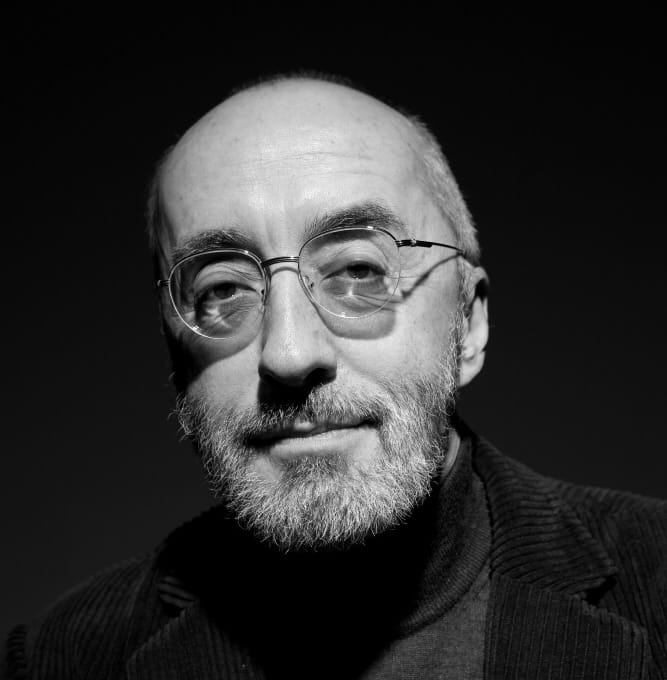Stefan Lano

Foto: Adriano Biondo
Sieben Lieder nach Texten von Rainer Maria Rilke für eine Singstimme mit Orchester
Biografie
Following his highly-acclaimed performances of the complete three-act version of Alban Berg’s LULU at the Teatro Colón in Buenos Aires, Stefan Lano began an extended collaboration with that theater which spanned from 1993 until 2010 during which period he led notable productions of many staples of twentieth century repertoire. In 2005, at the unanimous behest of the Resident Orchestra of the theater, he was appointed Music Director of the Teatro Colón where he remained until the theater’s closing for renovation in 2008. According to the historic tradition of the theater, only those conductors elected by the orchestra are regarded as Music Director of the Orquésta Estable, his two predecessors having been Fritz Busch and Erich Kleiber. He returned in 2010 with a double-bill of his invention combining Erich
Wolfgang Korngold’s Violanta and Alexander von Zemlinsky’s Ein florentinische Tragödie.
Opera engagements in recent seasons have included the Semper Oper Dresden (Hans Werner Henze L’Upupa, Mussorgsky Boris Godunov, Jake Heggie Dead Man Walking) ; Hamburg State Opera ( Turandot, Tosca ); Göteborg Opera (Tristan und Isolde ); National Opera of Slovakia (Boris Godunov, La bohème ); Gershwin’s Porgy & Bess in Atlanta and Philadelphia, fifty performances of West Side Story in Aachen and St. Gallen; Lithuanian National Opera & Ballet Theater (Turandot ); concert performances of this work with the Singapore Symphony and symphonic concerts with the orchestras of Zagreb, Vilnius, Basel, Sao Paulo, Mexico City, Singapore, Tokyo, Málaga, Tirana, Oulu, Athens, Skopje, Buenos Aires, Brasilia, Rio de Janeiro, Porto Alegre and the American Composers Orchestra at Carnegie Hall.
His professional career began as pianist at the Graz Opera after which followed an extended tenure on the Music Staff of the Vienna State Opera during the 1980s. He was solo pianist in the world-premiere performances of Luciano Berio’s Un re in ascolto at the Vienna State Opera, Salzburg Festival and Teatro alla Scala Milan conducted by Lorin Maazel who would later appoint him Associate Conductor of the Pittsburgh Symphony Orchestra in 1988.
In 1994, James Levine invited him to join the Music Staff of the Metropolitan Opera. His 1997 debut performance at the MET conducting Stravinsky’s The Rake’s Progress resulted in an engagement at the San Francisco Opera where he conducted a highly lauded rendition of Alban Berg’s LULU. He was immediately re-engaged in 2000 for Douglas Moore’s The Ballad of Baby Doe. In 1998, he returned to the Metropolitan Opera to prepare Arnold Schönberg’s Moses und Aron.
The clarity and expressivity of his renditions of twentieth century opera brought him to the attention of the Montréal Symphony Orchestra which contracted him for concert performances of Alban Berg’s Wozzeck in 2002 for which he was cited with an OPUS Award for Best Concert of the Season by the Conseil Québécoise de la Musique. His return to Montréal in 2003 conducting Roussel’s Bacchus et Ariane and Bartok’s Bluebeard’s Castle was accorded a second OPUS Award.
An ardent proponent of contemporary music, he presented the world-premiere performances of Richard Danielpour’s opera, Margaret Garner at the theaters of Detroit, Cincinnati, Chicago, Charlotte, NC and Philadelphia as well as Mark Adamo’s Lysistrata at the Houston Grand Opera. In December of 2015, his world-premiere recording of Joseph Summer’s opera, The Tempest was released by Albany Records in the United States.
He maintains a long-standing collaboration with the Escuela Superior de Música Reína Sofía in Madrid. His renditions of the Symphony N° 14 of Dimitri Shostakovich, Stravinsky’s Firebird (1919), Tchaikovsky’s Violin Concerto with Ellinor d’Melón in concerts at the Auditorio Nacional Madrid were broadcast by Radio-Television España.
In 2017, he again returned to Alban Berg’s LULU at the Deutsches Nationaltheater & Staatskapelle Weimar for which he later composed and conducted the incidental music for a new production of Alfred Döblin’s epic novel, November 1918. During this period, he made his debut at the State Opera in Prague with a new production of Ernst Krenek’s Jonny spielt auf. Shortly thereafter, he took over on short notice a celebratory gala concert of music by Krzystof Penderecki with the Sinfonia Varsovia in Warsaw.
Upon completion of studies in Composition and Piano at Oberlin Conservatory of Music while concurrently completing a degree in Biology at Oberlin College, he was awarded a full-scholarship as Teaching Fellow at Harvard University from which he holds a PhD in Composition. A scholarship award in 1977 from the DAAD (German Academic Exchange Service) afforded him further composition studies with Isang Yun, composing his Sinfonie Nr. 2 “Grodek” while concurrently studying in the conducting class of Prof. Hans Martin Rabenstein at the HdK Berlin.
Stefan Lano’s Sinfonie N° 3 “EIKASIA” was premiered in 2004 by the Lithuanian National Philharmonic with the composer conducting. His Sinfonie N° 1 “Aus Märchenzeit” was cited with a BMI Award in Composition and a Rockefeller Foundation Grant for its first performance at the 1976 Newport Music Festival. Antal Dorati also chose this work for First Prize of the National Society of Arts and Letters Firestone Award in Composition in Washington DC.
Having recently conducted the world-premiere of his his Sieben Lieder nach Rainer Maria Rilke for soprano and orchestra with the National Symphony of Argentina in Buenos Aires, he is currently composing his Piano Concerto Nr. 2 for the National Philharmonic of Lithuania with Muza Rubackyte as soloist.
A citizen of Switzerland, he resides with his wife in Basel.
